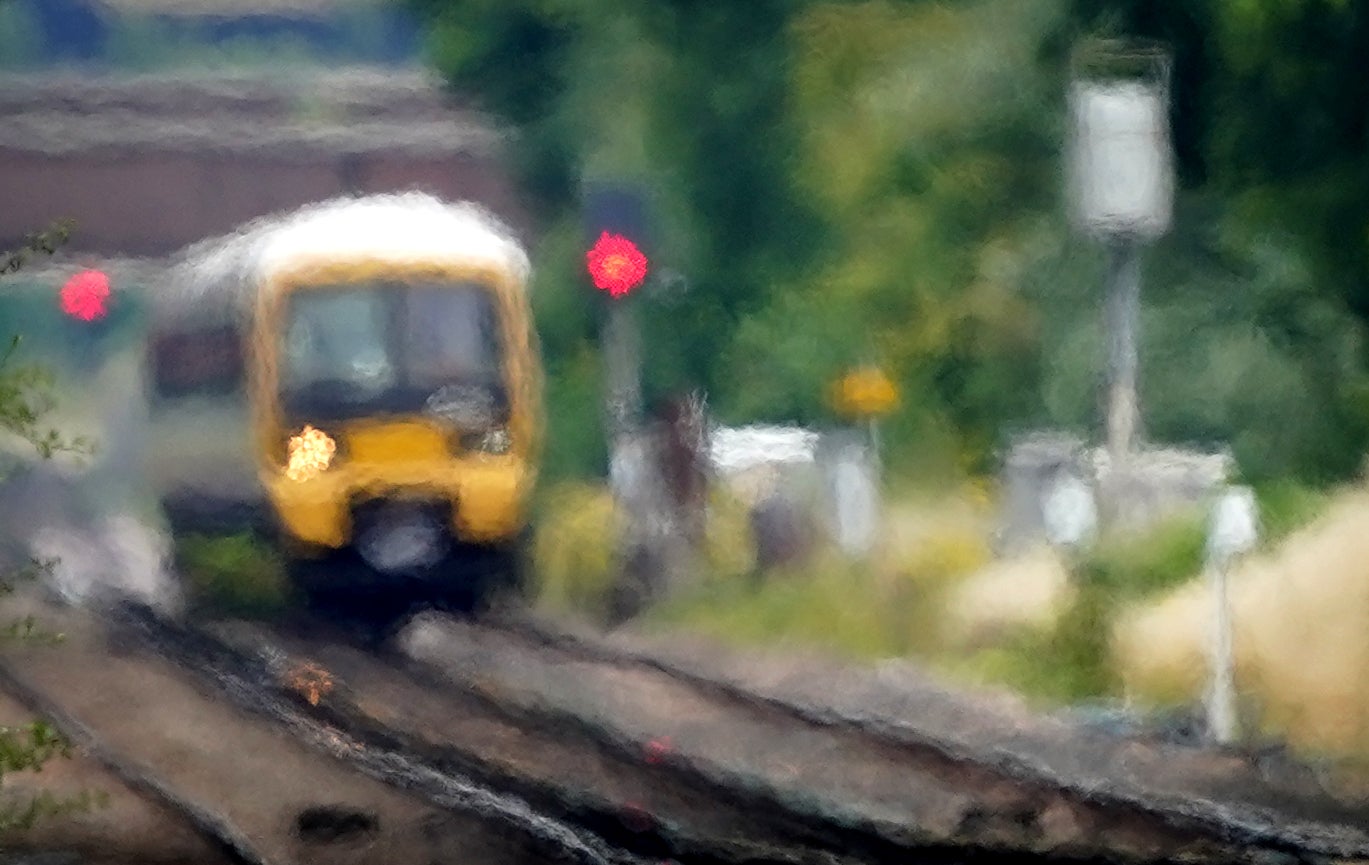Journey times could double as trains slow down amid extreme heat
Speed restrictions have been imposed on trains amid fears of rails buckling in the heat.

Journey times could more than double for train passengers as speed restrictions are imposed during the heatwave, Network Rail has warned.
The chances of services returning to normal by midweek will also depend on any “damage that the weather does to the infrastructure” over the course of Monday and Tuesday, travellers have been told.
Speed restrictions have been imposed on trains amid fears of rails buckling in the heat.
Kevin Groves, chief spokesman for Network Rail, said trips which typically take two hours could take “more than four hours” as emergency measures have been brought in to prevent trains derailing.
He told Sky News: “Certainly later on today that (buckling) is a strong possibility, which is why, from about midday today through till 8pm tonight, there will be large swathes of England and Wales that will have emergency heat-related speed restrictions placed on the rail network.”
Mr Groves promised refunds to any passengers who booked journeys on Monday and Tuesday but are rearranging travel for later in the week.
“Our advice to passengers if they can, today and tomorrow, is only travel if it’s really necessary; otherwise try and shift your arrangements to later in the week and you’ll get a full refund,” he said.
Jake Kelly, spokesman for Network Rail, warned of travel disruption across the country.
He said services returning to normal on Wednesday “will depend on the damage that the weather does to the infrastructure” over the course of Monday and Tuesday.
We hope and expect to run a full service on Wednesday and beyond, but that will depend on the damage that the weather does to the infrastructure over the next couple of days.
Speaking to BBC Radio 4’s Today Programme, Mr Kelly said: “Our advice very strongly to customers in England and Wales today and tomorrow is to only travel if absolutely essential, and to expect a very reduced train service and delays.
“And of course, as your listeners were hearing, on the East Coast mainline, that’s the route from London to destinations like Peterborough, Leeds and York, tomorrow, unfortunately, there won’t be a train service and passengers should not travel.
“We haven’t taken any of those decisions lightly, but we’ve not been faced with these exceptional temperatures before.”
He added: “We’re spending hundreds of millions of pounds a year on making the railway more resilient but ultimately faced with weather like we’ve never faced before, the infrastructure will suffer so we’ve had to put in place arrangements.”
Looking ahead to the rest of the week, Mr Kelly said: “We hope and expect to run a full service on Wednesday and beyond, but that will depend on the damage that the weather does to the infrastructure over the next couple of days. We have lots of plans in place to make sure that we can run.”
Transport for London has advised people to “only travel if essential” amid the extreme heat.
The Met Office has said it is “really concerned” about the UK hitting 41C on Tuesday.
Meanwhile, figures published by location technology firm TomTom show the level of road congestion at 9am on Monday was lower in most UK cities than at the same time last week.
In London, congestion levels fell from 53% on July 11 to 42% on Monday.
In Birmingham they were down from 46% to 43%, in Manchester they decreased from 45% to 37% and in Glasgow they dropped from 17% to 12%.
Bookmark popover
Removed from bookmarks